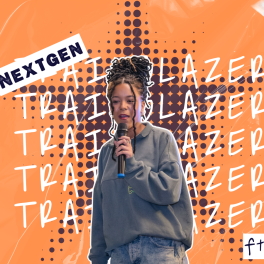
Humans are extremely nuanced creatures. Thus, it comes as no surprise that their actions are also full of nuance. Some actions might seem wrong without context but with the proper reasoning, the entire perspective may change. Our reaction to a certain action is predominantly dependent on the context behind it. This is the reason why an accidental killing is viewed as a significantly less despicable crime as opposed to a premeditated murder. Needless to say, actions and intentions are intricately linked with each other.
We, as humans, know this; we can justify our own actions even if we know they are objectively wrong. Arriving late is objectively wrong, but if we were late because of traffic or any uncontrollable circumstance then we let ourselves off the hook. In light of this, we judge our own actions without separating them from our thought process and context. However, we tend to purely judge other people’s actions, usually without considering there could be additional context. This is usually referred to in psychology as the fundamental attribution error. This hypocrisy is completely natural because a person is only privy to his thoughts and reasons that pave the way for an action. In contrast, our knowledge is only confined to other’s actions. Considering this, the question arises, should we only judge other people solely on their actions?
Judging others while taking into account their intention and unique circumstances seems like the right thing to do. However, the problem is that we can never know anyone’s unfiltered thoughts aside from our own, so how can we take them into account? The obvious solution is to ask them, which works in many cases, but there are often situations where this isn't possible. Something similar happened when I was sitting in the passenger seat while my dad was driving, and someone dangerously cut us off in traffic. My dad erupted with anger, saying "They're so reckless and inconsiderate!" I, too, shared his sentiment as that seemed to be the case on the surface.
While the driver’s action may have seemed thoughtless at first, I started to realize that maybe I should give him the benefit of the doubt. Whenever we do not know someone’s true intention, I believe we should think whatever the best-case scenario might be. I thought of the driver as dealing with an urgent situation, like taking someone to the hospital. This approach removes the irritation or resentment that I might have felt for the driver and replaces it with empathy and understanding.
Aside from never having the opportunity to know someone’s intention, we can never be sure whether someone is lying or not. I know this seems cynical to say, but it's true, someone could always be deceiving about their intentions. My approach is to consider whatever they claim as the truth, even if I have reservations. I assume everything is true until proven false. If something seems suspicious, I don't jump to conclusions just based on a gut feeling. Instead, I investigate as much as possible before forming an opinion. I try to give people the benefit of the doubt whenever I can.
To me, banking on that slim possibility that others are being truthful, believing in the innate goodness of people and trusting each other outweighs the detriments of being wrong. Being distrustful and resentful towards the people around you is the price to pay for judging their actions and not considering their potentially good intentions. That's not the way I want to live my life.
Support Young Creators Like This One!
VoiceBox is a platform built to help young creators thrive. We believe that sharing thoughtful, high-quality content deserves pay even if your audience isn’t 100,000 strong.
But here's the thing: while you enjoy free content, our young contributors from all over the world are fairly compensated for their work. To keep this up, we need your help.
Will you join our community of supporters?
Your donation, no matter the size, makes a real difference. It allows us to:
- Compensate young creators for their work
- Maintain a safe, ad-free environment
- Continue providing high-quality, free content, including research reports and insights into youth issues
- Highlight youth voices and unique perspectives from cultures around the world
Your generosity fuels our mission! By supporting VoiceBox, you are directly supporting young people and showing that you value what they have to say.





